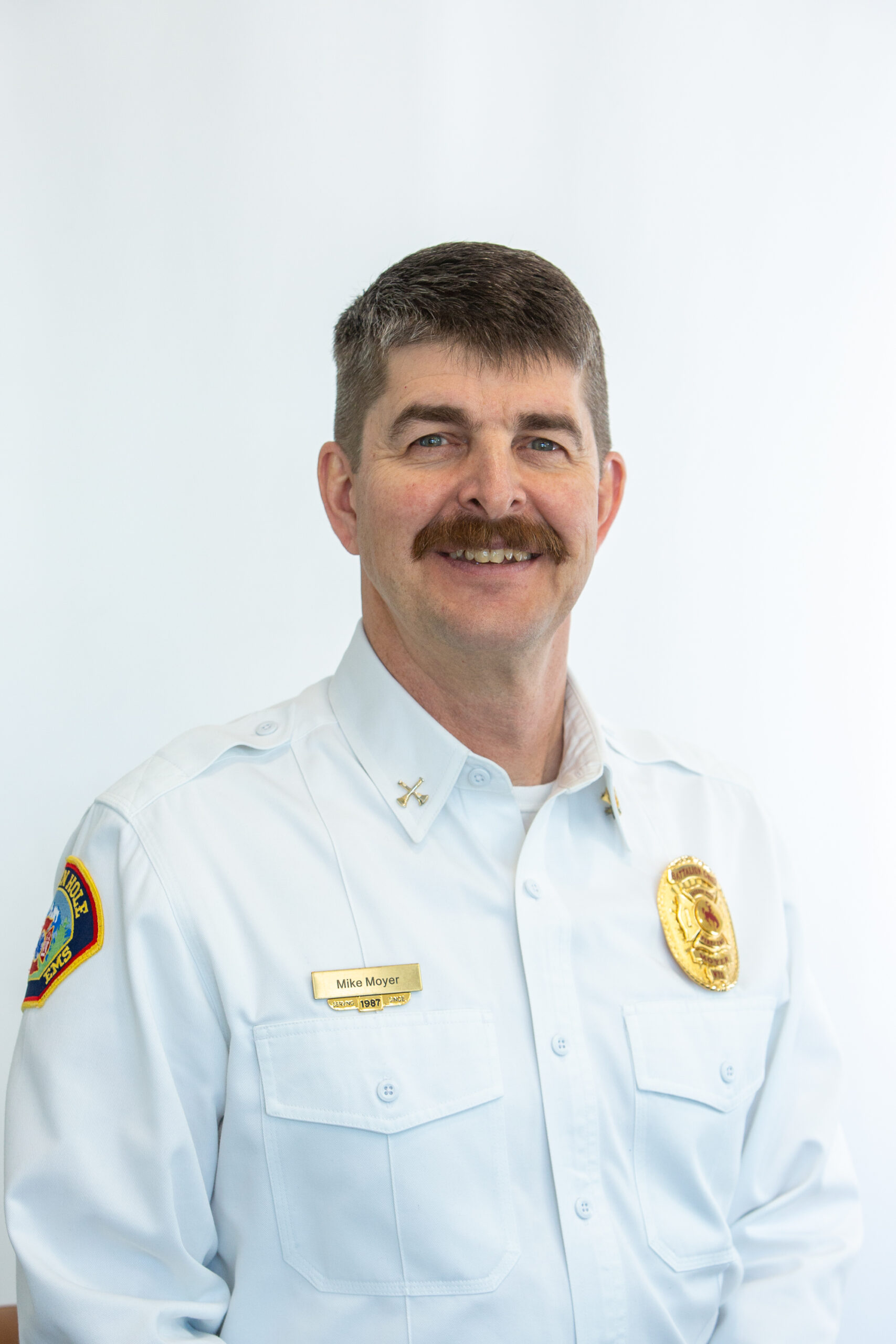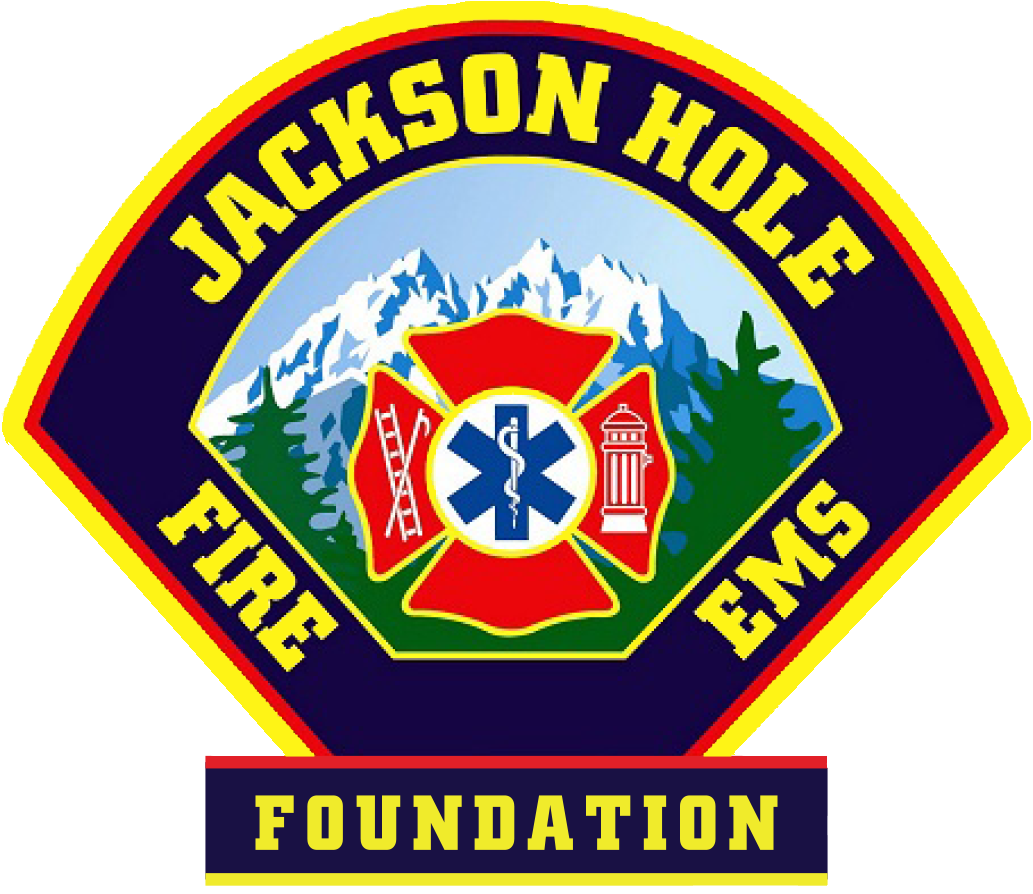
Mike Moyer“Sometimes you have to have a calm exterior even though your feet are paddling hard under the surface. Especially when you’re the face of emergency services on the street, and especially in a leadership position.”
Mike Moyer
Battalion Chief
Present
Where are you from? I am from Quakertown, Pennsylvania, in southeastern Pennsylvania just north of philly.
How did you come to Jackson? Came out during the summer of ‘86 with a youth group just to do all the ‘stuff’ and just experience the area. The next summer I came out, I wasn’t quite sure what I wanted to do so I worked at a christian kids camp out here and then I stayed to ski for the winter, and that’s it.
What do you do in your free time? My family is very important to me, but our girls are all out of the house now and so I love to fly fish, which is probably my favorite thing to do. I also love to hunt and backcountry ski and all that type of stuff. All the Jackson things. I love to read as well.
How long have you been a part of emergency services? I have been involved in emergency services in some form since the fall of ‘87. I started as a firefighter/EMT in Pennsylvania before I came out here, right out of high school, as a volunteer. I went through Fire 1 during the fall of ‘86, and got my EMT in the spring of ‘87.
What made you want to get involved in fire and emergency medical services? I took an anatomy class in high school and was just enthralled by that and I took a first aid class my senior year and we did a field trip to a fire department as well as a medical flight service and was just intrigued to get involved. I had a friend who invited me to join the local fire department, so I joined and haven’t stopped since! I was hooked from moment one.
What has been your role in the department over the years? Everywhere from when we had hospital-based EMS to fire to … I couldn’t join the volunteer department because I didn’t have a car at the time, but I could drive the ambulance! So I started taking shifts at the hospital as an ER tech for 14 years, working on the ambulance, and then I was the director of EMS there, then I was able to get back into fire…as I got a little more established…Started here as a Battalion Chief in 2004/2005.
How have you seen the department change over time? I think moving from members being established homeowners and local business owners to a younger organization with less ability to grow roots. That’s probably the biggest change. The people are generally the same: the people, their interests, why they stay, why they don’t stay, those things are pretty consistent.
What are your future goals in the department? There’s a good quote that says something along the lines of: ‘as you transition later in your career, you transition from less operational to more influential.’ That’s my goal: to influence and prepare and inspire you to wear these bugles. That’s my goal, to mentor, prepare, and press people to go get their fire science degree, go get their paramedic, go meet the people in the other agencies that we work with now, because the people that you meet out on that wildland engine…ou two are going to be in leadership someday at the same level, and if you have a relationship now, it will be that much better.
Do you have future goals for the department? I think to continue to be malleable and flexible/adaptable: To be able to turn the ship quickly. That ability for the department to be able to adapt and change with the community. Never letting go of our values and our mission, but adapting to the changes in our community, whether we like them or not. We’ve often been that. We’re a midsized department, which allows us to turn the ship a little faster. I know a lot of people don’t think we turn very fast, but compared to a lot of big older departments that have been around for 150 years…we have a greater ability to adapt and be malleable.
What is your favorite part of the job? My favorite part of the job is to know what to do out there in the field when nobody else does, and by that I mean when somebody collapses in the restaurant, there’s a head-on collision, to be able to step in and help people on their worst day and to provide some initial stability to that cascading event.
What about the most challenging part? Sometimes managing the organization is more challenging than managing the emergencies. We sometimes joke here, among the white shirts, about how a significant emerging event can be easier to deal with because the steps we need to take are clearer. Smooth seas do not make for skillful sailors.
What advice would you give new recruits? Lean in. It’s a little different in every situation. Lean in, ask questions. If you’re in ER: change beds, wipe up the puke, let the staff know you want to be there and help and they’ll pull you right in the action in return. Stand in a corner: they’ll let you stand in a corner. The same thing applies in the fire house. Ask questions. Lean in. Do the tough stuff, work hard. It will be amazing what doors will open because of that.
Is there anything you wish you had known when starting? Some things that come to mind are the whole mental health piece. Take care of yourselves along the way. Recognize that these incidents and these terrible things that we see have a cumulative impact on you and we deal with that regularly throughout our time in the business. Don’t let things stack up. Recognize that your family might not understand what you do, your loved ones might not understand what you do, and that’s ok.
What is the most valuable skill/trait for someone to have in this line of work? Humility. You won’t ever know it all, and you need to always be learning. Be confident but curious, and compassionate.
What do you think you bring to the department? Hopefully calm in the chaos…which at times is my weakness. I might not appear to be decisive enough at times for some people, but I’ve learned to be ok with that. Sometimes you have to have a calm exterior even though your feet are paddling hard under the surface. Especially when you’re the face of emergency services on the street, and especially in a leadership position.
Who is your mentor/who do you look up to? What guides your moral compass? I’m a christian so I guess my moral compass would be looking to Jesus as my mentor, he guides a lot of my decision making. On a more human level though I would say Paul King who was one of our medical directors. He pressed us hard to know our stuff and when I was young in the business, he pressed me hard and I learned what I needed to know… he had a lot of influence. He was tough on us and it was good. He definitely was that early mentor that cared about us but was also tough on us.
How do you manage working this job as well as prioritizing family time? We learned somewhere mid-career that, when I get home, I need a little time to get out of my box, out of my fire box, and into my family box. My family has learned to give me that little bit of time and I’ve also learned that I need to start getting out of my box before I walk through my front door. It’s not right for me to arrive at home and be like, “Y’all need to just hold on, wait for me to be ready to engage with you.” Sometimes I’ll take the long way home so I can get out of my box and change gears in my mind and my heart so that I’m ready when I walk through the door and be ready to be dad.
